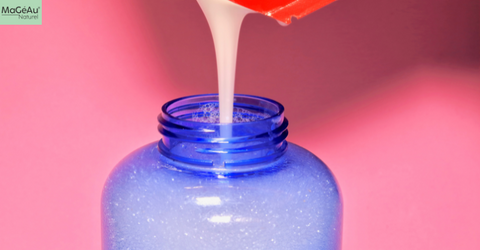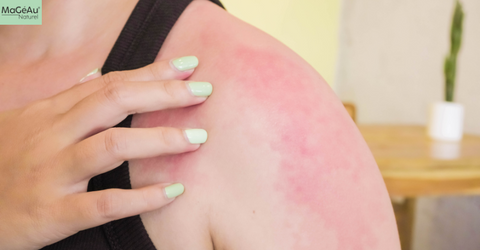Chemotherapy is a powerful treatment designed to fight cancer, but it often comes with side effects that many people don't expect. One of the most overlooked yet deeply uncomfortable side effects is skin sensitivity. If you're undergoing chemotherapy, you might have already noticed your skin feeling dry, itchy, irritated, or more prone to redness. This can be frustrating and even painful, making an already difficult journey even tougher.
Most people talk about nausea and hair loss during chemotherapy, but very few discuss the challenges that come with skin-related changes. Here, we'll explore why chemotherapy affects your skin, the lesser-known issues it causes, and how you can manage these problems with the right skincare routine.
Why Does Chemotherapy Make Skin Sensitive?
Chemotherapy drugs target rapidly dividing cancer cells, but they also affect other fast-growing cells in your body including those in your skin. This disrupts your skin’s natural ability to heal and retain moisture, making it more fragile, reactive, and prone to irritation. Additionally, chemotherapy weakens your immune system, meaning your skin has a harder time defending itself against external factors like pollution, harsh weather, and bacteria.
Another lesser-known fact is that chemotherapy alters the skin’s pH balance, making it more acidic. This can lead to increased sensitivity, inflammation, and a compromised skin barrier, allowing moisture to escape while irritants enter more easily.
Common Skin Problems During Chemotherapy
If you’re undergoing chemotherapy, you may experience some or all of the following skin concerns:
1. Extreme Dryness and Flaking
Chemotherapy strips the skin of its natural oils, leading to extreme dryness. You may notice your skin becoming flaky, tight, or even cracking, particularly on your hands, feet, and lips.
2. Redness and Irritation
Inflammation is common, making your skin look red, blotchy, or rash-prone. This can be particularly noticeable on your face, neck, and chest.
3. Heightened Sensitivity to Products and Weather
You might find that skincare products you’ve used before suddenly cause stinging or burning. Additionally, your skin may react more strongly to cold, heat, wind, and sun exposure.
4. Increased Risk of Infections
With a weakened immune system, your skin becomes more vulnerable to infections. Small cuts or cracks in dry skin can become entry points for bacteria, leading to complications.
5. Delayed Healing
Even minor wounds or scratches may take longer to heal due to chemotherapy’s impact on cell regeneration.
How to Take Care of Chemotherapy-Sensitive Skin
To protect and nourish your skin during chemotherapy, it’s essential to choose gentle, deeply hydrating products that help repair and strengthen the skin barrier. Here are some expert-recommended products to include in your routine:
1. Gentle Cleanser – with Magnesium, Vitamin E, and Beetroot Extract
Using a harsh face or body cleanser can strip your skin of its remaining moisture, making dryness worse. Opt for a gentle cleanser with magnesium, which helps calm inflammation, and vitamin E, a powerful antioxidant that aids in skin healing. Beetroot extract is also excellent for boosting hydration and protecting the skin from further damage.
2. Hydrating Shower Gel – Grape Seed Oil, Aloe Vera, and Turmeric
Your regular shower gel may be doing more harm than good. Many body washes contain sulphates and artificial fragrances that irritate already sensitive skin. Instead, switch to a hydrating shower gel with grape seed oil, which is rich in antioxidants and fatty acids to restore moisture. Aloe vera soothes irritation, while turmeric has anti-inflammatory properties to help reduce redness and discomfort.
3. Nourishing Body Lotion – Shea Butter, Aloe Vera, and Magnesium
Moisturising your body daily is crucial to combatting chemotherapy-induced dryness. Look for a body lotion packed with shea butter, which provides intense nourishment, aloe vera to calm irritation, and magnesium to strengthen the skin barrier. Apply this immediately after showering to lock in moisture.
4. Protective Hand Lotion – Cacao Butter, Aloe Vera, Magnesium, and Vitamin E
Your hands often suffer the most during chemotherapy, becoming rough, cracked, and sore. A deeply moisturising hand lotion with cacao butter will create a protective barrier, preventing further moisture loss. Aloe vera and magnesium soothe irritation, while vitamin E promotes healing and reduces inflammation.
5. Repairing Lip Balm – Shea Butter, Vitamin E, and Candelilla Wax
Chapped lips are a common struggle during chemotherapy, often becoming painfully dry and even splitting. Unlike traditional petroleum-based lip balms that only provide temporary relief, a natural lip balm with shea butter delivers deep hydration, while vitamin E helps repair the delicate skin. Candelilla wax, a plant-based alternative to beeswax, locks in moisture without any synthetic additives.
Additional Tips to Protect Sensitive Skin During Chemotherapy
Beyond using the right skincare products, here are some extra steps you can take to minimise discomfort:
- Avoid hot water – Use lukewarm water for washing your face and body to prevent further drying of your skin.
- Wear sunscreen daily – Chemotherapy makes your skin more sensitive to the sun, so always apply a broad-spectrum SPF 30 or higher before going outside.
- Stay hydrated – Drink plenty of water and eat foods rich in healthy fats (such as avocados and nuts) to support your skin from within.
- Choose soft, breathable fabrics – Avoid scratchy or synthetic materials that can irritate sensitive skin.
Navigating Chemotherapy-Induced Skin Sensitivity with Care
Chemotherapy-induced skin sensitivity is a challenge that isn’t often talked about, yet it affects so many people undergoing cancer treatment. By understanding the causes and effects of these skin changes, you can take proactive steps to soothe and protect your skin. With the right gentle, hydrating skincare routine, you can minimise discomfort and restore your skin’s health.
If you're currently undergoing chemotherapy or caring for someone who is, choosing the right skincare products can make a world of difference. Be kind to your skin—it’s working just as hard as you are. Follow us on Facebook for more updates.





Comments (0)
There are no comments for this article. Be the first one to leave a message!